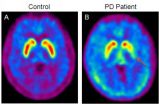(Press-News.org) An international collaboration led by academics at the University of Sheffield, has shed new light into Parkinson's disease, which could help with the development of cures or treatments in the future.
The collaboration, which was led by Professor Peter Redgrave from the University's Department of Psychology, suggests that many of the problems suffered by patients with Parkinson's disease - difficulties in initiating actions, slow laboured movements and tremors – can be understood in terms of damage to control circuits in the brain responsible for habits.
The analysis, which is published online and will appear in the November issue of Nature Reviews Neuroscience, has involved combining the experience of an international team of clinical experts to explain why, paradoxically, removal of part of the brain can help sufferers of Parkinson's disease regain smooth initiation of movements.
An important processing unit in the brain (the basal ganglia) is part of two behavioural control circuits – habitual control, which directs our fast, stimulus-driven automatic, largely unconscious movements; and voluntary goal-directed control, which is driven by a conscious appreciation of the action's outcome. This means goal-directed movements are typically slower, require effort, and can only be done one at a time. Different regions of the basal ganglia are involved in goal-directed and habitual control. An important proposal in the Nature Reviews Neuroscience article is that Parkinson's disease is linked to a preferential loss of the neurotransmitter dopamine from the regions involved in habitual control.
Many of the symptoms of Parkinson's disease can therefore be understood in terms of a catastrophic loss of habits, which means patients have to rely on the goal-directed control system for everything they do. This idea can explain why their movements are slow, effortful and easily interrupted. For example, when approaching a narrow door or object, a patient with Parkinson's disease can suddenly freeze and find it difficult to start again. Under serial goal-directed control, (i.e. you can only think about doing one thing at a time), when the patient stops thinking about walking and starts to think about going through the door or avoiding the object, they stop walking.
The proposed analysis offers a further important insight into the symptoms of Parkinson's disease. At the level of the basal ganglia, the goal-directed and habitual control circuits are physically separated, but down-stream, they converge on shared motor systems (that is, we can do the same action either under goal-directed or habitual control). Numerous experiments show that the loss of dopamine from the basal ganglia increases inhibitory output from the habitual control circuits. Therefore, for a patient with Parkinson's disease to express goal-directed behaviour, they have to overcome the distorting inhibitory signals from the malfunctioning habitual control system. This provides a further reason for why patients find it so difficult to initiate and maintain actions and why their behaviour is so effortful and slow.
These ideas also offer a potential resolution of a continuing paradox in Parkinson's disease research – why destruction of the parts of the basal ganglia responsible for habits can have such a beneficial effect on Parkinson's disease. Professor Redgrave and his team propose that removal of the distorting inhibitory output from habitual control circuits could make it easier for goal-directed behaviour to be expressed.
It is hoped this new interpretation of Parkinson's disease will help in the discovery of new cures and treatment in the future for the 120,000 people in the UK suffering with the disease. Firstly, by directing attention to what makes the habitual basal ganglia particularly vulnerable, and secondly to parts of the brain where goal-directed behaviour is being disrupted by dysfunctional signals from the circuits responsible for habits.
Neuroscientist Professor Peter Redgrave from the University of Sheffield's Department of Psychology, said: "We hope our analysis provides a better understanding of the link between normal and abnormal functioning in the basal ganglia. This is important because the better your understanding of normal function, the better the questions you can ask about its failings, which hopefully, will direct you towards more effective treatments."
INFORMATION:
Notes for editors:
The distinction between goal-directed control and habitual control can be highlighted by considering different ways a car can be driven. When the traffic light turns red, conscious goal-directed control circuits will be aware that failure to stop could lead to unfortunate consequences, and that applying the brakes will achieve the desired outcome. Alternatively, habitual control is demonstrated in the case of a practiced driver, deeply engaged in conversation with a passenger, when the perception of the red stop-light somehow causes the brakes to be applied, while the green go-light sets the car in motion again. If, later, the driver is asked whether they stopped at the junction, there will be no memory of the event.
To read the full paper entitled 'Goal-directed and habitual control in the basal ganglia: implications for Parkinson's disease' in Nature Reviews Neuroscience, visit: http://www.nature.com/nrn/journal/vaop/ncurrent/pdf/nrn2915.pdf
For further information please contact: Shemina Davis, Media Relations Officer, on 0114 2225339 or email shemina.davis@sheffield.ac.uk
To view this news release and images online, visit http://www.shef.ac.uk/mediacentre/2010/1772.html
To read other news releases about the University of Sheffield, visit http://www.shef.ac.uk/mediacentre/
Research brings cure for Parkinson's disease a step closer
2010-10-20
ELSE PRESS RELEASES FROM THIS DATE:
Culturally inspired mobile phone games help Chinese children learn language characters
2010-10-20
Mobile phone-based games could provide a new way to teach basic knowledge of Chinese language characters that might be particularly helpful in underdeveloped rural areas of China, say researchers in Carnegie Mellon University's Mobile & Immersive Learning for Literacy in Emerging Economies (MILLEE) Project.
Earlier this year, researchers reported that two mobile learning games, inspired by traditional Chinese games, showed promise during preliminary tests with children in Xin'an, an underdeveloped region in Henan Province, China. The researchers from Carnegie Mellon, ...
Inhaling nitric oxide eases pain crises in sickle cell patients
2010-10-20
AUGUSTA, Ga. – Inhaling nitric oxide appears to safely and effectively reduce pain crises in adults with sickle cell disease, researchers report.
A study of 18 patients in Atlanta, Chicago and Detroit showed that the nine inhaling nitric oxide for four hours had better pain control than those receiving only the standard self-administered morphine, said Dr. C. Alvin Head, chairman of the Department of Anesthesiology at the Medical College of Georgia School of Medicine.
"This study shows that you can breathe the gas and have less pain, which is the major reason sickle cell ...
Paraquat resistance discovered in major weed
2010-10-20
Scientists at the University of Adelaide have discovered new cases of herbicide resistance in annual ryegrass, one of the world's most serious and costly weeds.
For the first time, researchers have found that annual ryegrass has developed resistance to paraquat, the second most important "knockdown" herbicide used by cropping farmers.
Weed management experts Dr Peter Boutsalis and Associate Professor Christopher Preston, from the University's Waite Research Institute, made the discovery in samples taken from two separate farming properties near the South Australian ...
How green is your campus?
2010-10-20
Williamsburg, VA —October 19, 2010— Corporations and individuals alike are increasingly focused on "going green," in an attempt to reduce their carbon footprint and impact on the environment. It is questionable whether higher education institutions are adopting sustainable practices at the same rate, despite large consumption rates of energy and water, among other resources. In the first study of its kind, Contemporary Economic Policy presents an article which compares the factors that drive colleges to adopt sustainable practices to the factors that motivate for-profit ...
Inflammatory breast cancer focus of new report
2010-10-20
ATLANTA—October 19, 2010—A rare and deadly form of breast cancer that often goes unrecognized by clinicians and patients alike is the focus of a new report from leading researchers. Inflammatory breast cancer (IBC) has made headlines as an unrecognized and misunderstood form of breast cancer. It has a younger age of onset, progresses rapidly, and has lower overall survival compared to other breast cancers. For the new report, leading researchers led by Massimo Cristofanilli, M.D., of Fox Chase Cancer Center in Philadelphia outline IBC's unique clinical presentation, pathology, ...
Children's best friend
2010-10-20
Montreal, October 19, 2010 – Dogs may not only be man's best friend, they may also have a special role in the lives of children with special needs. According to a new Université de Montreal study, specifically trained service dogs can help reduce the anxiety and enhance the socialization skills of children with Autism Syndrome Disorders (ASDs). The findings published this year in Psychoneuroendocrinology may be a relatively simple solution to help affected children and their families cope with these challenging disorders.
"Our findings showed that the dogs had a clear ...
Conserving resources: Producing circuit boards with plasma
2010-10-20
Flexible circuits can be found in many devices where space and weight considerations are dominant in the design of electronics: in cars, in cameras and video equipment, in mini-computers for athletes or in inkjet printers. And the market continues to grow: according to the business consultancy Frost & Sullivan, sales in this area will grow to more than $16 billion by the year 2014.
At K 2010, the trade fair for plastics in Düsseldorf, Germany, scientists from the IST in Braunschweig will unveil a new reel-to-reel technology for the production of flexible circuits and ...
Consumer sentiment shaped by differing cultural attitudes toward power
2010-10-20
CHAMPAIGN, Ill. – In the battle of egos, Donald Trump vs. Hugo Chavez might be a draw. But as symbols of power, each resonates differently with different cultures, as cultures nurture different views of what is desirable and meaningful to do with power, according to new research by a University of Illinois marketing expert.
Sharon Shavitt says the relation between culture and one's concepts of power emerge from one's cultural orientation, and how that culture shapes one's beliefs, attitudes and goals.
"People's views of powerful people and what powerful people are supposed ...
Bacteria gauge cold with molecular measuring stick
2010-10-20
HOUSTON -- (Oct. 19, 2010) -- Some bacteria react to the cold by subtly changing the chemistry of their outer wall so that it remains pliable as temperatures drop. Scientists identified a key protein in this response mechanism a few years ago, but the question of how bacteria sense cold in the first place remained a mystery. Based on a study by scientists at Rice University and Argentina's National University of Rosario, the answer is: They use a measuring stick.
The study, published in the September issue of Current Biology, involved a series of intricate experiments ...
Osteoporosis drug builds bone in patients with gum disease
2010-10-20
ANN ARBOR, Mich.---A drug marketed to grow bone in osteoporosis patients also works to heal bone wounds in gum disease patients, a University of Michigan study suggests.
"This new approach for the treatment of periodontal disease could allow us to rebuild some of the bone that is lost due to periodontal disease, which until this point has been very difficult to achieve," said Jill Bashutski, clinical assistant professor at the U-M School of Dentistry and first author on the study. "Current treatments to re-grow bone around teeth affected with gum disease have limited ...



